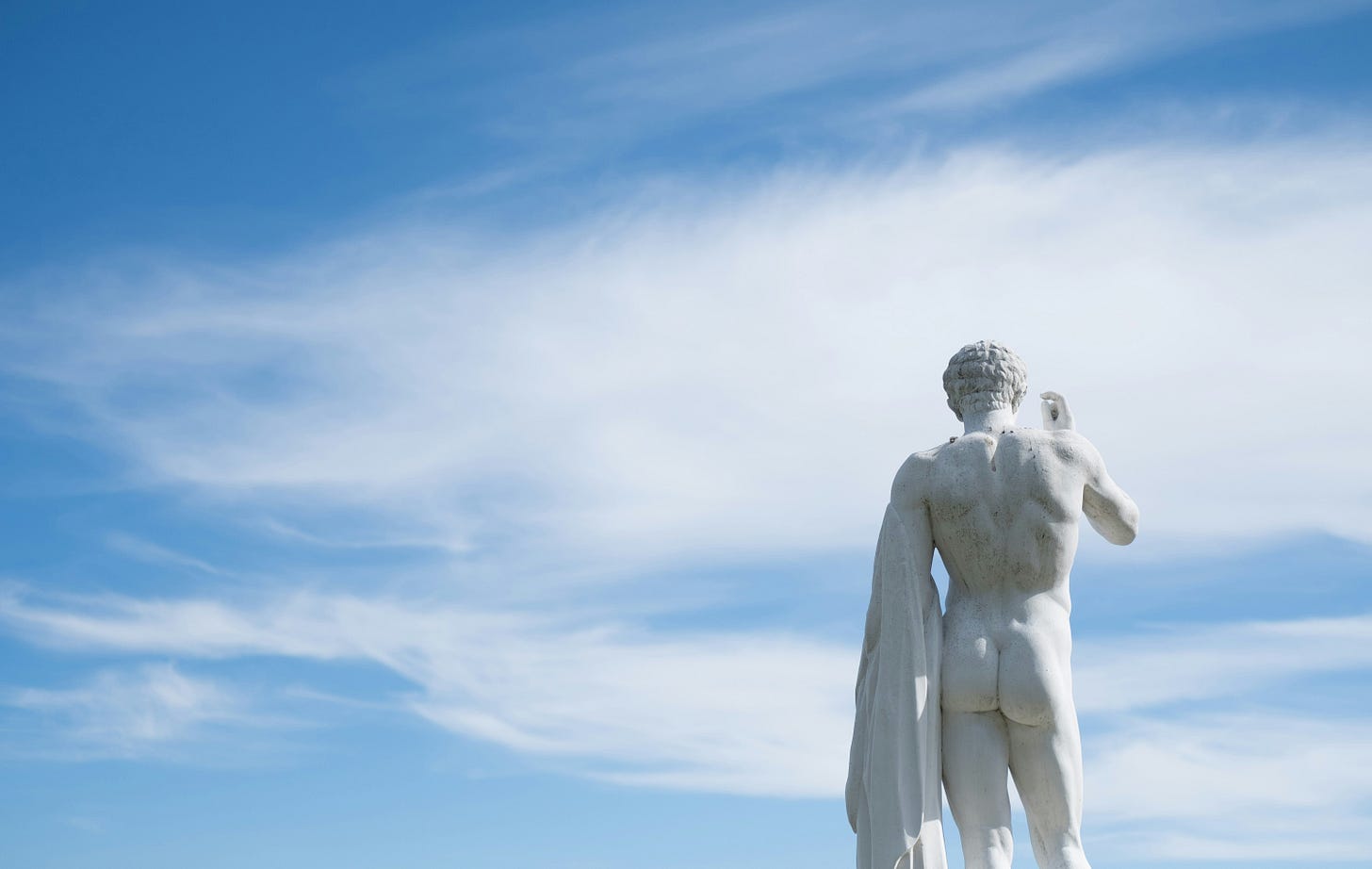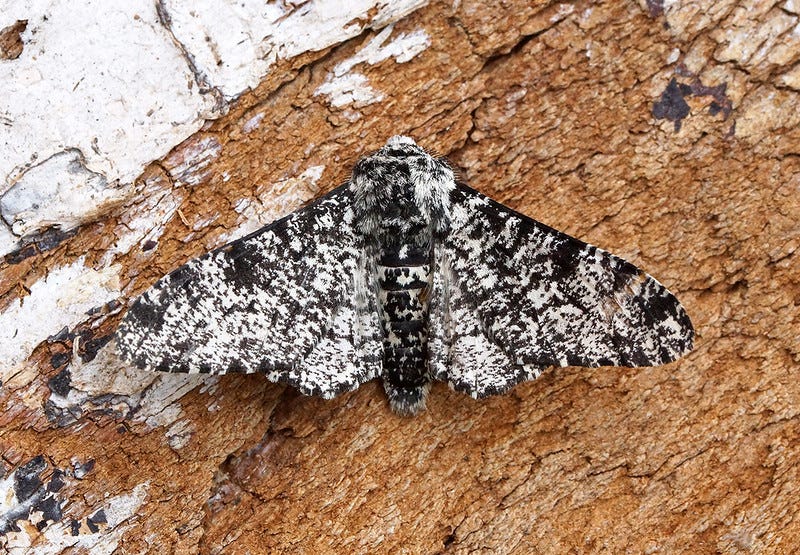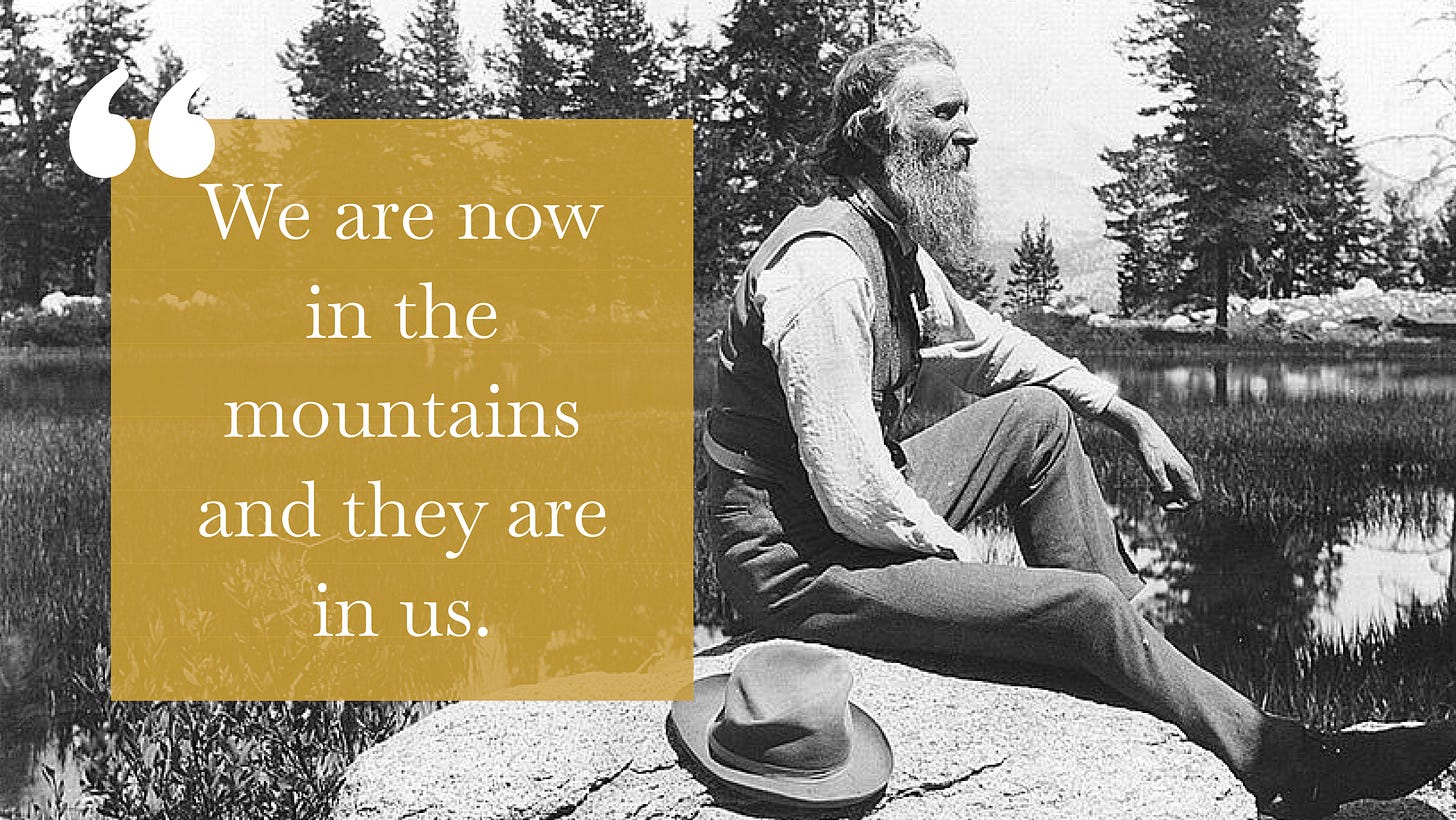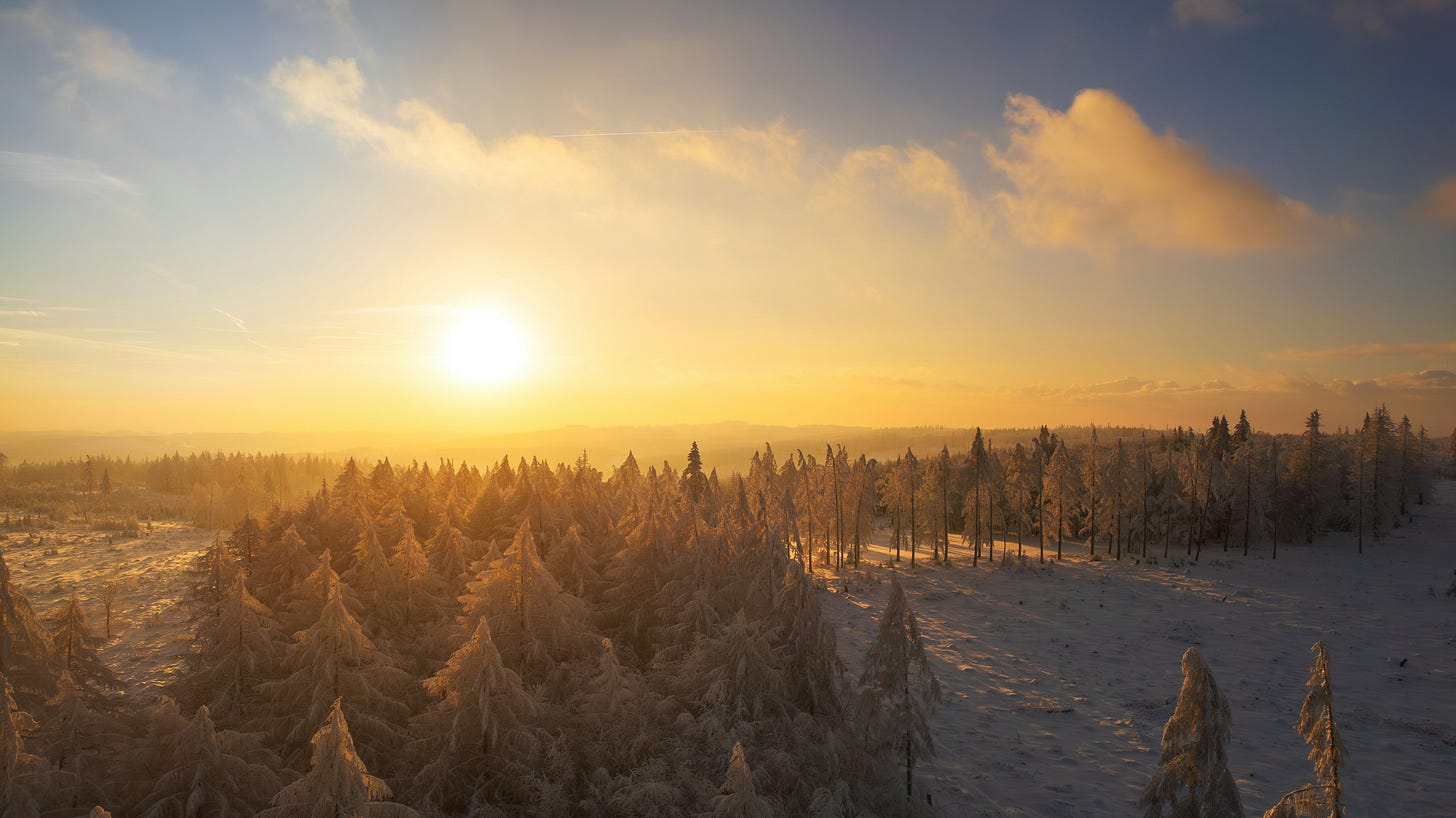The ancient Greeks had a different perspective on time than the modern Western world - they faced the other way around!
Instead of looking towards the future with their backs to the past, they faced the past and backed into the future.

While that might seem counterintuitive, it begins to make sense once you think about it.
We can't see the future, only the past.
Admittedly, our view is imperfect, clouded by the hazy distance of time, cultural sediment and stories told mainly by 'victors'.
But it's useful to remind ourselves that there are other ways of perceiving the present than to be lured onward by the promise of progress, because the story of the future has also been co-opted by the powerful (yes, them again!).
We are in thrall to an anthropocentric idea of progress that keeps us from recognising what this pivotal time demands.
Yet, when we turn around and look back on 3.8bn years of life on Earth, the message of the moment becomes clear: humanity needs to evolve into its ecological niche.

These dynamically twinned concepts of evolution and ecosystems are essential to understanding where we are, how we arrived here, and where we're backing towards.
Stuck facing the future and seduced by the myth of progress, we seem to imagine that we have ceased to evolve. That the dynamic processes which honed life for almost four billion years simply stopped for our species alone, somewhere around 12,000 years ago with the Agricultural Revolution.
"Thanks, Mother Nature, we've got it from here", we glibly assure as we assume to have wrestled control of our destiny from the process of evolution.
The assumption is baked into many mindsets and cultures, even some religions.
But of course we are not in control. We do not have dominion.
As this steadily unfolding mess we've gotten into is demonstrating, no single species can divorce itself from the rest of life on Earth and the dynamic processes which shape it.
You don't need to be a Zen Buddhist to grasp this (though it can't hurt). John Muir had it right when he famously observed:
"When we try to pick out anything by itself, we find it hitched to everything else in the universe."
Our life is governed by our way of being, or more specifically, by our interbeing.
Existence, evolution, even intelligence, is relational.
This is a truth that modern science has finally come around to correlating, after millenia of natural philosophers, guides and elders had worked it out for themselves.
Until we embody the fact that what we are facing is not a problem to be solved but essential feedback from our ecosystem, we will remain stuck in a failing system; we will fail to evolve.
Yet there is a way forward, a way through. It starts with listening to each other and the more-than-human world, learning to love the process and what emerges.
Because that is how we come to love life again.
"Being listened to is so close to being loved that most people can't tell the difference."
David W. Augsburger, Caring Enough to Hear and be Heard
And yet, we are not listening.
The failure of modernity to hear or heed the feedback that has devasted the living world, and overwhelms our cities, societies and nations, makes us less responsive, less intelligent, than plants and trees.
We are as enmeshed with the rest of the natural world as, erm... the rest of the natural world.
And yet, thanks to our hubristic projection of what classes as intelligence and our self-imposed separation, we are less receptive to ecologically relevant feedback than the apparently inanimate flora we have evolved alongside.
They are on the march, moving towards the poles or uphill in a bid to outpace climate change, which bleeds out from the equator at a global average of 115cm per day.
And what are we doing? Quite the opposite. We are building walls, claiming turf, and extracting ever more materials and resources in a reckless, hopeless, tooth-and-nail fight to remain unmoved, unchanged.
Looking at it that way, the plants and trees are far wiser than we.
Like all of us, I am on a journey. My thinking, and more importantly, my being, has evolved. I haven't always had this understanding or awareness.
It has been five years since I brought partners together in York and North Yorkshire to agree England's first, and only, Local Industrial Strategy with an ambition to be carbon negative.
I no longer believe we can grow our way out of this. But we don't need to resort to nihilism and doomist despair either, I've been working with somatic practitioner and integral coach Sophia Le Rendu to craft a regenerative practice - Listening for the Way Through - based on the work of Nora Bateson, Otto Sharmer and Iain McGilcrist, amongst many other teachers.
This embodied approach helps us better attend to the challenge and opportunity of the moment by using the transformational power of generative listening to develop our awareness, intention and agency.
The entire practice is available as a 5-week online programme starting in the new year, but this December we're hosting a free two-hour session to introduce the approach and discuss this pivotal time in its broadest context with you.
Please join us to listen to this moment.
It would be an honour to have you with us.




great writing Tim thx, the training looks great but will be out of the country with a dodgy connection at that time - i will sign up anyway but please accept apologies in advance if i dont show up